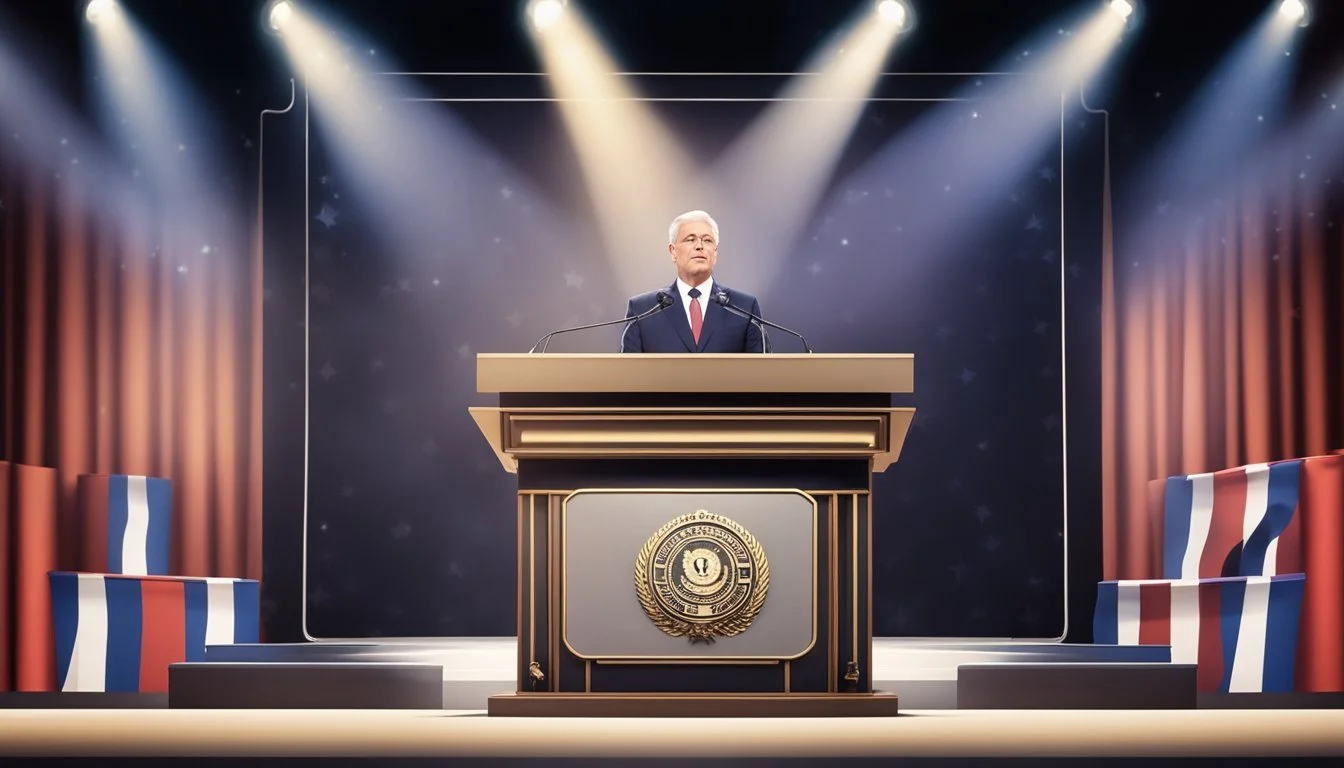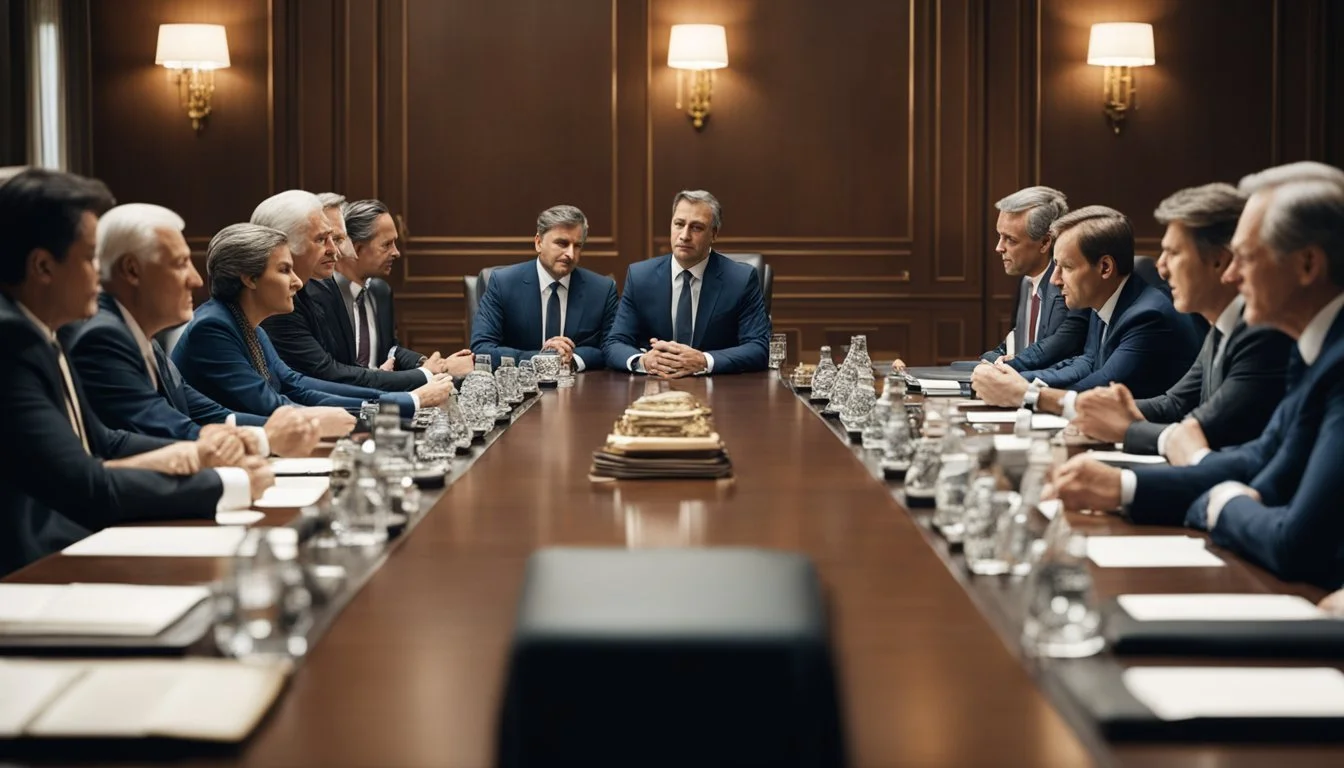6 Must-Watch Films on Political Leadership
Essential Viewing for Understanding Governance
Films about political leadership offer a compelling window into the complexities and challenges faced by those in power. These movies not only narrate historical events but also delve into the personal struggles and ethical dilemmas of political figures. For anyone seeking a deeper understanding of the intricate world of governance and influence, these films provide a captivating and educational experience.
Political dramas and biographies have the power to illustrate the impact of significant decisions and the weight of responsibilities borne by leaders. They highlight how an individual's vision and actions can shape the course of history. Through these narratives, viewers gain insight into the intricate balance between personal conviction and public duty.
1) The Ides of March (2011)
"The Ides of March" is a gripping American political drama directed by George Clooney. The film stars Ryan Gosling as an idealistic staffer for a new presidential candidate, played by Clooney. The storyline delves into the murky waters of political ethics and power struggles that occur behind the scenes of a political campaign.
The narrative is driven by character development and features standout performances from a star-studded cast, including Philip Seymour Hoffman, Paul Giamatti, Marisa Tomei, Jeffrey Wright, and Evan Rachel Wood. The ensemble cast contributes significantly to the film's intense atmosphere and dramatic tension.
Adapted from Beau Willimon’s 2008 play "Farragut North," the film explores themes of ambition, betrayal, and the moral compromises inherent in political life. These elements are woven together to portray a realistic yet poignant depiction of the complexities of American politics.
For additional information about the film, you can visit its Wikipedia page.
2) All the President’s Men (1976)
"All the President’s Men" is a landmark political drama that delves into the investigative journalism that uncovered the Watergate scandal. Directed by Alan J. Pakula and based on the real-life accounts of Washington Post reporters Carl Bernstein and Bob Woodward, this film brilliantly captures the intensity and challenges of political reporting.
Robert Redford and Dustin Hoffman deliver compelling performances as Woodward and Bernstein, respectively. They showcase the painstaking efforts required to follow leads and verify facts in their pursuit of the truth. The film is noted for its methodical pacing and attention to detail, reflecting the meticulous nature of investigative journalism.
The screenplay, written by William Goldman, is both engaging and insightful. It offers a behind-the-scenes look at the journalistic process. Jason Robards' portrayal of Washington Post editor Ben Bradlee adds depth to the narrative, emphasizing the critical role of editorial support in investigative work.
The film's historical significance and dramatic presentation make it a must-watch for those interested in political history and journalism. It remains a powerful example of how the press can influence political landscapes and hold leaders accountable.
More information can be found on Wikipedia or IMDB.
3) Wag the Dog (1997)
"Wag the Dog" is a dark comedy that explores the intersection of political spin and media manipulation. Directed by Barry Levinson, the film stars Robert De Niro as a spin doctor and Dustin Hoffman as a Hollywood producer.
The plot revolves around their scheme to create a fake war to distract the public from a presidential scandal. The performance of both lead actors is compelling, adding a layer of authenticity to the film's satirical nature.
The film remains relevant due to its biting commentary on the power of media and its influence over public perception. It is an insightful case study on how narratives can shape political landscapes.
For more details, check Wag the Dog on IMDb.
4) The Contender (2000)
"The Contender" centers around Senator Laine Hanson, who is nominated to become the Vice President of the United States. As she faces the confirmation process, her personal life and past decisions come under intense scrutiny.
The film stars Joan Allen as Laine Hanson, with strong supporting roles played by Gary Oldman, Jeff Bridges, and Christian Slater. Jeff Bridges portrays the sitting President who nominates Hanson.
The film explores themes related to gender politics, media influence, and the ethical boundaries of political maneuvering. It delves into the double standards that women face in leadership positions.
Directed by Rod Lurie, "The Contender" offers a gripping narrative on the complexities and moral quandaries inherent in the political landscape.
More information can be found here.
5) Primary Colors (1998)
"Primary Colors" is a political drama directed by Mike Nichols. The film offers an insightful and compelling portrayal of American politics.
This movie is based on the novel of the same name by Joe Klein. It follows a fictionalized version of Bill Clinton's 1992 presidential campaign.
John Travolta stars as Jack Stanton, a charismatic Southern governor. Emma Thompson plays his wife, Susan Stanton, providing a strong supporting role.
The screenplay, written by Elaine May, masterfully balances humor and drama. It highlights the complexities and moral ambiguities of political life.
"Primary Colors" gives viewers a behind-the-scenes look at a presidential campaign. It uncovers the machinations and strategies involved in running for office.
The film received critical acclaim for its performances and direction. It remains a relevant and thought-provoking piece on leadership and politics.
For more information, visit IMDb.
6) The Manchurian Candidate (1962)
John Frankenheimer's The Manchurian Candidate stands as a pioneering force in the genre of political thrillers. Released in 1962, the film showcases a gripping narrative centered on Cold War paranoia. It stars Frank Sinatra as Major Bennett Marco, a Korean War veteran grappling with horrific memories.
The plot thickens as Marco uncovers a sinister conspiracy involving brainwashing and political manipulation. Laurence Harvey plays Raymond Shaw, another war hero who has been turned into an unwitting assassin. Angela Lansbury delivers a chilling performance as Shaw's manipulative mother.
This film tackles themes of mind control, betrayal, and the abuse of power. Its portrayal of political intrigue and Cold War fears resonated deeply with audiences of the time. Despite being a work of fiction, the film's atmosphere and plot elements mirror the intense anxieties of its era.
The Manchurian Candidate remains influential today for its groundbreaking approach and sharp socio-political commentary. It paved the way for many films that explore psychological and political complexities. For more information, visit its Wikipedia page or its IMDB page.
Themes in Political Leadership Films
Political leadership films often explore the complexities of moral choices and power struggles. These themes delve into the ethical challenges leaders face and the conflicts that arise as they navigate the corridors of power.
Moral Dilemmas
Films in this genre frequently highlight the ethical challenges faced by political leaders. These dilemmas often force characters to choose between personal loyalty and public duty. For example, in All the President's Men, the journalists grapple with exposing a significant political scandal, weighing the consequences of truth versus potential destabilization.
Moral ambiguity is a recurring motif, showcasing how leaders must balance integrity with the practicalities of governance. In The Contender, the protagonist's commitment to truth and principles is tested against political expediency and smear campaigns.
These stories illustrate that moral choices are rarely straightforward, emphasizing the constant tension between personal values and the demands of political life. Ethical dilemmas drive the narrative, creating a compelling portrayal of leadership under scrutiny.
Power Struggles
Power struggles are central to political leadership films, providing a dramatic tension that propels the story forward. These struggles often involve internal conflicts within a political party or government and between opposing factions. In Mr. Smith Goes to Washington, the protagonist battles entrenched corruption and powerful adversaries who seek to undermine his idealistic agenda.
These films showcase the complexities of navigating power dynamics and the compromises leaders must make to achieve their goals. The ongoing conflict keeps viewers engaged, offering a realistic depiction of the machinations at play in the political arena.
Power struggles also highlight the personal cost of political ambition. Characters must confront betrayal, manipulation, and the sacrifice of personal relationships to maintain their status or achieve their objectives. By focusing on these conflicts, the films offer a rich exploration of the intricate dance of leadership and power.
Realism vs. Fictionalization
Filmmakers often balance historical accuracy with creative liberties to craft compelling stories about political leaders.
Historical Accuracy
Historical accuracy is paramount in films based on real events and figures. "All the President's Men" epitomizes this with its meticulous portrayal of the Watergate scandal. The filmmakers emphasized factual representation, consulting primary sources and involving individuals who lived through the events. This dedication to detail ensures viewers receive an authentic portrayal of historical moments. It enhances the educational value of the film, allowing audiences to gain insights into the complexities of political histories. However, even well-researched films like this can be subject to the subjective nature of personal recollections, which can inadvertently lead to minor inaccuracies.
Creative Liberties
Creative liberties are often taken to enhance the narrative and character arcs. In movies like "Fair Game", inspired by Valerie Plame's real-life story, filmmakers sometimes heighten drama or condense timelines to maintain audience engagement. Directors and writers might introduce fictionalized dialogues or composite characters to streamline storytelling. These adjustments aim to make the storyline more cohesive and emotionally resonant. While such liberties can make the narrative more engaging, they sometimes blur the line between fact and fiction, leading to debates about the portrayal of true events. This approach has its merits, but it can also lead to misunderstandings about the actual historical events depicted.



